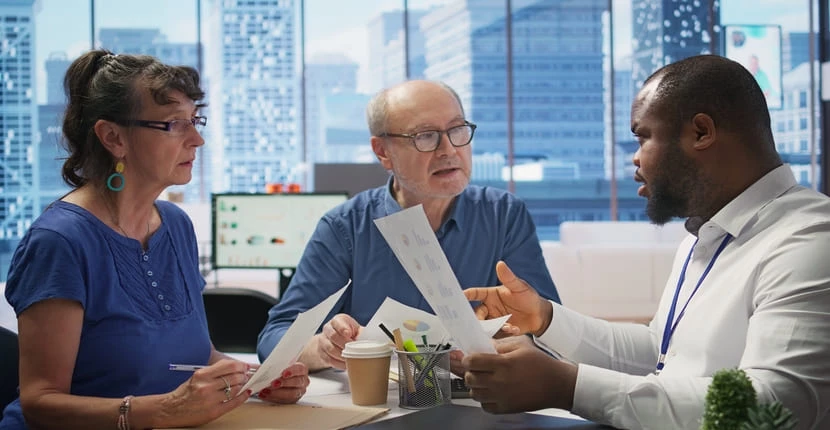
At Fast Insolvency, we assist struggling UK companies in managing their debt by negotiating directly with creditors.
Whether you're facing missed payments, threats of legal action, or pressure from HMRC, creditor negotiations provide a way to reduce liabilities, halt enforcement, and prevent insolvency.
We help you avoid legal action, reduce debt pressure, and protect your company’s future, all through practical, compliant strategies.
Contact us today for free, confidential advice on how to start negotiating with your creditors effectively.
What Are Creditor Negotiations?
Creditor negotiations refer to the process of working directly with your creditors to agree on new payment terms, reduced balances, or extended deadlines in .
This informal approach can help prevent more serious legal action and keep your business trading.
When Should I Negotiate with Creditors?
You should begin negotiations as soon as your business starts missing payments or cannot meet its existing credit terms.
The earlier you act, the more likely creditors will be flexible and open to compromise.
What Can Be Agreed in Negotiations?
Agreements may include reduced monthly payments, freezing interest, writing off a portion of the debt in , or allowing time to restructure your business.
Terms depend on your financial situation and each creditor’s willingness to cooperate.
Will My Creditors Agree to Reduced Payments?
Many creditors prefer to receive partial repayment over time rather than take legal action.
If you provide accurate financial information and show a willingness to pay what you can afford, they are often open to alternative arrangements in .
Can I Negotiate with HMRC?
HMRC is often one of the largest creditors and may agree to a Time to Pay Arrangement if you act early and provide full financial disclosure.
We can assist in presenting a credible proposal to HMRC on your behalf.
Is Creditor Negotiation Legally Binding?
Informal agreements are not legally binding unless documented in writing and signed by both parties.
For more formal protection, a Company Voluntary Arrangement (CVA) may be used to bind all unsecured creditors under a single agreement.
What Happens If Negotiations Fail?
If creditors refuse to agree or you default again, they may issue a statutory demand, court claim, or winding-up petition in .
In these cases, we help companies move quickly into formal procedures to avoid forced closure.
Can I Still Trade While Negotiating?
Most companies continue to trade during informal negotiations, as long as they avoid incurring new debt they cannot repay.
We can help you assess what is legally safe and financially realistic.
How Long Do Negotiations Take?
Depending on the number of creditors involved, informal negotiations can take anywhere from a few days to a few weeks in .
Having professional support speeds up the process and improves outcomes.
Do I Need an Insolvency Practitioner?
While not legally required for informal talks, involving a licensed insolvency practitioner in can significantly improve your chances of reaching a favourable agreement, especially with larger creditors or HMRC.
Will My Creditors Stop Legal Action If I Start Negotiating?
Some creditors may pause enforcement if they believe a realistic repayment plan is being proposed.
However, there are no guarantees in , which is why acting quickly is so important.
What If I Can’t Afford Any Repayment?
If repayment is impossible, we may recommend a formal procedure like Creditors’ Voluntary Liquidation (CVL) or administration in to close the company while protecting directors and managing liabilities lawfully.
Is There an Alternative to Informal Negotiation?
You may wish to enter a CVA in , which is a formal insolvency process that allows you to repay creditors over 3–5 years and legally prevents further action while the arrangement is in place.
Will Negotiations Affect My Creditors’ Willingness to Trade in Future?
If handled properly, most suppliers and lenders will appreciate open communication and a plan for repayment.
Maintaining a professional relationship in during financial difficulty can protect long-term partnerships.
How Much Does Creditor Negotiation Cost?
The cost of creditor negotiation ranges from £500 to £2,000.
Depending on the number of creditors, the complexity of debts, and whether legal support is needed.
At Fast Insolvency, we offer fixed-fee advice and representation with no hidden charges.
Get Free Creditor Negotiation Advice Today
If you're struggling to manage creditor demands, take action before the situation escalates.
We offer expert creditor negotiation services at a low cost.
Contact Fast Insolvency now in for free, no-obligation advice and fast support with your negotiations.
